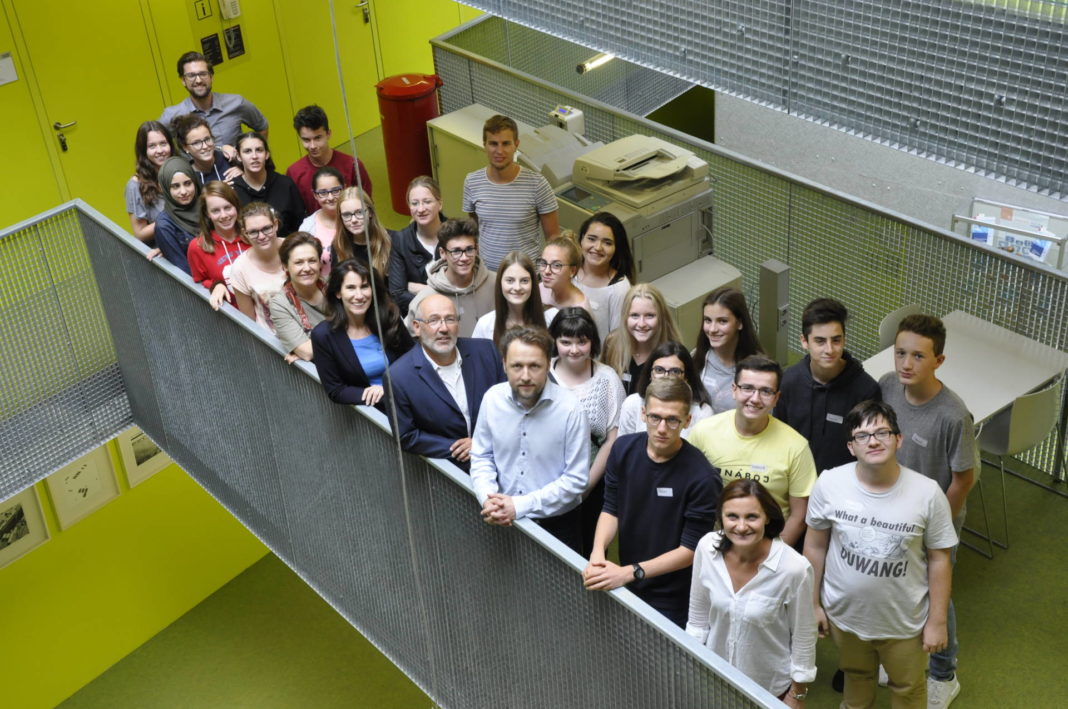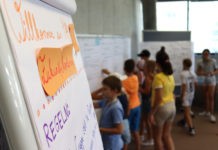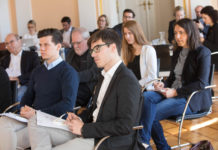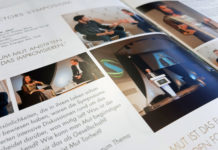Students from Dachsberg gymnasium are developing visions on the future of education in a new cooperation project with ACADEMIA SUPERIOR. The project started with a workshop at JKU Linz. The young people are supported by education-experts from Upper Austria’s universities.
How will the digitally interconnected classroom of the future look like? Does it still need teachers when there is artificial intelligence? What subjects will young people learn tomorrow? How can talent, curiosity and engagement be encouraged at school? And how should our school system be built to offer fair opportunities for all?
These questions are addressed by the pupils from the Gymnasium Dachsberg as part of a Young Academia project of the Academia Superior. Last week there was the start for the project at the Science Park of JKU Linz. Initial visions and themes were formulated and the young people were supported by four experts who discussed with them:
Gabriele Zehetner from the Pädagogische Hochschule der Diözese Linz showed how curiosity can be aroused at school and spoke about new results of brain research. „The main factor, if interest in a subject arises, are the teachers”, she said.
Schoolchildren remember twice as much if you make them curious – Gabriele Zehetner
Sociologist Barbara Herzog-Punzenberger from the Johannes Kepler University of Linz spoke about migration and the equality of opportunities in the education system and explained, why access examinations for universities can also be more equitable than the Matura is.
Multilingualism is good for learning and for health, as it delays dementia – Barbara Herzog-Punzenberger
Thomas Populorum from the HBLA Lentia explained what Entrepreneurship Education is and pleaded for a better economic education for young adults: „The right to vote needs economic knowledge”, he said Thomas.
The basis for creativity is playing – Thomas Polulorum
Computer Scientist Clemens Holzmann from FH OÖ Campus Hagenberg gave fascinating insights into technologies that will develop the education system further in the future and discussed AI, robots, apps and smart classrooms. „Teaching and learning is becoming more and more digital,” he said. „But, coding in kindergarten is too early,” said the IT expert.
The visions of the pupils:
- Replace gifted funding with motivated funding
- Assess the learning progress and not the achievement of a learning goal
- More flexibility in the school system
- Ability to learn independently
- More practical instructions for life
Next project steps will bring the students to a future classroom in Steyr and to the Ars Electronica Center in Linz to discover new educational technologies. Interviews with other education experts are already planned. The result of the project will be a documentary film, which should provide further discussion material.







